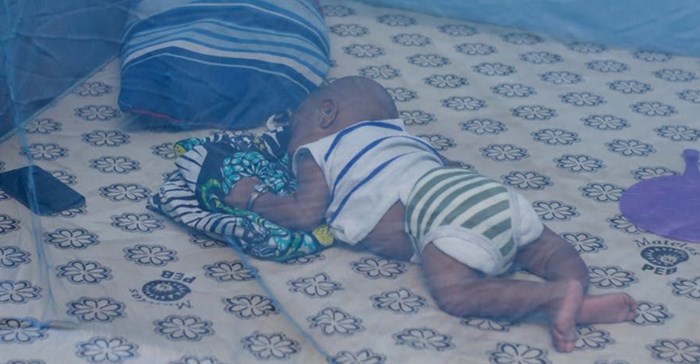#WorldMalariaDay: As a Malian, the slogan 'zero malaria starts with me' has special meaning

Not only does malaria claim 435 000 lives a year, it also carries the constant threat of unexpected medical bills, lost income or education, and suffering.
In my native Mali, malaria is one of the primary causes of death, particularly in children under five. In 2017 alone, there were more than 1000 reported deaths caused by the mosquito-borne disease. And this is likely to be an underestimate.
The human cost of malaria to my country is simply unacceptable. And as a biologist working on new malaria control methods, the theme of this year’s World Malaria Day – “Zero malaria starts with me” – holds enormous personal relevance.
Mali and other countries in sub-Saharan Africa have a high prevalence of malaria. Those of us working and living on the ground are best placed to understand the challenges of tackling this disease.
As researchers working in communities, we are much more alive to the potential tensions between what we do as scientists, and the impact our work has on local people. In addition, we are also approaching our research in a collaborative way, ensuring that we use the knowledge of local people to make key decisions.
Lived experience
People in Africa face common issues related to malaria everyday. These include dealing with the difficulty of making sure everyone sleeps under a bed net to prevent mosquito bites at night. The changing biting patterns of mosquitoes and their increasing resistance to insecticides are also causing challenges.
So, in the search for new and better control methods, the experience and expertise of those of us from African countries is vital.
My African colleagues and I at Target Malaria – a global not-for-profit research consortium – are not only on the frontline of scientific research to stop malaria, we are also embedded in the social, cultural and environmental context of this challenge.
Read more:Fight against malaria needs combination of innovative science and communities
We believe that we can contribute to “zero malaria” through our work. The focus of our research is reducing the population of mosquitoes that carry the disease by genetically modifying the sex of mosquito offspring to reduce the number of biting females. And we believe we can achieve this by targeting the main malaria-carrying mosquito species in Africa.
We are in the early stages of developing a genetically modified mosquito that can only produce male offspring. This can be done by fragmenting the X chromosome in the males so they only pass on a Y chromosome, resulting in the offspring being male (XY), as a female would need to inherit an X from each parent (XX).
The underlying science involves using a “gene drive” system. This means that a trait modified by CRISPR technology is spread through mosquito generations to bias the inheritance of male sex genes and reduce the overall population. A key aspect of our work involves ensuring this modification continues to show the same effects over time, does not mutate in unexpected ways, or is passed beyond malaria vector mosquito populations.
If we can make this intervention work, it would help overcome human factors such as reluctance to use bed nets or to stay indoors after dark. It would also address any growing resistance to insecticides and repellents. Genetically modifying mosquitoes could also bypass social factors such as income, class or education that may make people more vulnerable to malaria.
Managing controversies
In addition to studying mosquitoes in the lab, we study them in their natural environment. We want to understand how they interact with people and the wider environment to properly appreciate the risks and obstacles to our work.
This means working closely with communities as we roll out the research. For example, local communities provided inputs into our risk assessment process for sterile male mosquitoes - our first phase of research - by sharing with us what they can see as possible risks or possible consequences of the use of modified mosquitoes.
Communities we work with also share their knowledge and contribute to our research through mosquito capture activities, dialogue and by simply allowing us to carry out our work.
We are not blind to the potential for controversy around such a new technology.
As scientists, we are well aware of the potential implications of genetic modifications spreading through a wild populations of insects. This is why any new solution could only ever be used if proven to be safe and with no unacceptable adverse impact on the environment or wider ecosystem.
But also as a Malian, who lives in one of the countries where this could be used one day, I want this to be safe because my family and I will hopefully be among those who benefit.
This new technique is an ambitious attempt to use emerging technology to solve an age-old problem.
But it carries promise because it is being developed by those of us with the knowledge, expertise and experience of malaria and its impact on our countries.
What we need to be successful is for our leaders to also embrace the contribution we can make to solving one of our biggest, most persistent health challenges.
This article is republished from The Conversation under a Creative Commons license. Read the original article.![]()
Source: The Conversation Africa

The Conversation Africa is an independent source of news and views from the academic and research community. Its aim is to promote better understanding of current affairs and complex issues, and allow for a better quality of public discourse and conversation.
Go to: https://theconversation.com/africa













